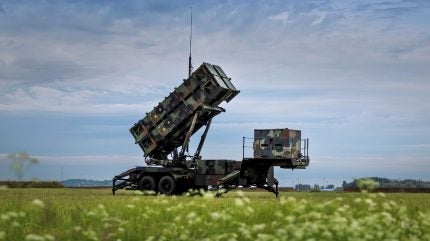
The Netherlands is set to increase its defence budget to an estimated €22bn in 2024, with plans to further raise spending to €24bn ($27bn) by 2025.
This decision comes as global tensions escalate, particularly in Europe, prompting the Dutch government to reinforce its military capabilities in response to emerging threats.
The defence white paper previously reported additional F-35 jets for the Air Force, NH90 helicopters, and the reestablishment of the Army’s tank battalion, as part of the additional €2.4bn.
The Netherlands’ decision to substantially boost its defence budget reflects a wider trend of European nations preparing for potential conflict.
According to a release from the Netherlands Ministry of Defence on 17 September 2024, the budget will allocate the largest share towards investments in equipment, personnel, and overall readiness. Minister of Defence Ruben Brekelmans emphasised the urgency of preparing for potential conflicts and deterring adversaries: “The Netherlands must contribute to deterring opponents to prevent an armed conflict in Europe. This means that the armed forces must be permanently ready to face the new threats.”
Breakdown of budget expenditure
The total defence budget for 2024 will be divided with the Royal Netherlands Army receiving the largest share for a single branch, allocated €2.02bn (9% of the total budget), the Royal Navy allocated €1.18bn (5%), and the Royal Air Force set to receive €1.02bn (5%).
A substantial portion of the budget will also be allocated to support services and the Defence Support Command, receiving €1.73bn (8%), along with the Command Material and IT services, which will receive €864.08m (4%). Board staff expenses will account for €2.16bn (10%) of the budget.
Aside from other expenditure, €19.22m is earmarked for “secret” expenditures, a category that remains undisclosed for security reasons, constituting less than 1% of the total budget. This category is reserved for sensitive operations or projects where revealing details could compromise national security, intelligence activities, or covert military operations.
Undivided expenditures, which encompass various unclassified categories, will account for €466.16m (2%).
Investment in equipment and modernisation
Of the total defence budget, €9.78bn, or 44%, will be specifically allocated to investments and maintenance under the Defence Equipment Budget Fund (DMF). This fund will focus on modernising the Netherlands’ military hardware and infrastructure. The largest investment under this category will be in equipment, accounting for a significant €7.72bn (79%). Infrastructure and real estate projects will also receive €826.76m (8%), while €1.23bn (13%) will be dedicated to IT systems.
The need for modern equipment is a pressing issue for the Dutch military. In recent years, the focus has shifted towards “intelligent systems,” including drones, smart sensors, and quantum technologies, which are seen as vital to maintaining military superiority. The Dutch government has highlighted the importance of collaborating with both NATO and the EU to standardise military systems across borders.
Budget for personnel and recruitment
Personnel costs, which include salaries, pensions, and other benefits, will account for €6.92bn (56%) of the total budget. The government also plans to allocate an additional €260m to recruit more soldiers and reservists, recognising the growing need for a scalable and adaptable military force.
State Secretary Gijs Tuinman acknowledged the role of defence personnel as “the backbone of the organisation,” announcing that the government will continue to invest in military staff to meet the increasing demands of national and international security. The number of young people participating in voluntary military service is also set to rise from 500-600 this year to approximately 1,000 by 2025, as part of efforts to bolster recruitment.
Focus on readiness and international cooperation
As part of its broader strategy to enhance combat readiness, the Dutch government will allocate €2.04bn (17%) to deployment, including ongoing missions and military support for Ukraine. Additionally, €350.93m (3%) will be spent on exercises to ensure troops are prepared for any eventuality.
With the increase in funding, the Netherlands is aiming to enhance its cooperation with the domestic and European defence industries. By rapidly scaling up production capabilities, the Dutch government hopes to align its purchases with Nato’s heightened requirements and promote greater standardisation within the alliance.







